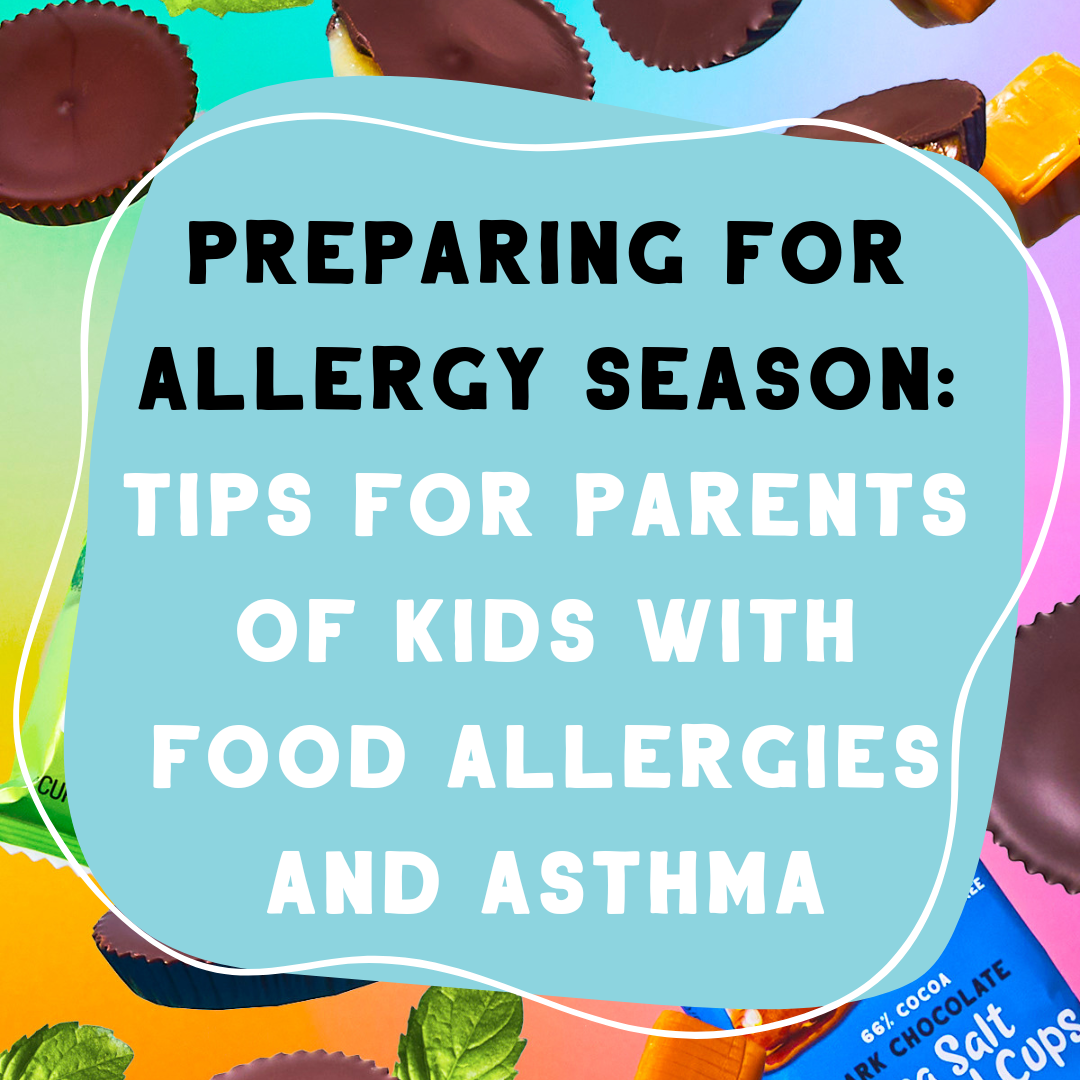

Preparing for Allergy Season: Tips for Parents of Kids with Food Allergies and Asthma
Spring Allergy Guide for Kids with Food Allergies & Asthma
Spring brings longer days, warmer weather, and more opportunities for outdoor fun! For kids with food allergies and asthma, a little extra planning can help ensure they enjoy everything the season has to offer—without discomfort or unexpected reactions. By staying proactive, monitoring seasonal allergens, and keeping safe snacks on hand, you can help your child embrace the season with confidence.
1. Understand the Connection Between Seasonal Allergies, Food Allergies, and Asthma
Many children with food allergies also experience asthma or environmental allergies, a condition known as the Allergic or Atopic Triad. Seasonal allergens like pollen or mold can trigger respiratory symptoms, increase inflammation, and make food allergy reactions more severe.
- Oral Allergy Syndrome (OAS): Some children with pollen allergies may experience mild itching or tingling in the mouth when eating certain raw fruits and vegetables. Common triggers include apples, melons, carrots, and celery.
- Increased risk of asthma flare-ups: Pollen and mold exposure can make asthma symptoms worse, making it even more important to monitor breathing during high allergy days.
- Heightened immune response: When the immune system is already reacting to environmental allergens, a food allergy reaction may become more severe.
💡 Resource: Learn more about the Allergic or Atopic March from the Asthma and Allergy Foundation of America.
2. Monitor Pollen and Allergy Forecasts
Staying ahead of seasonal allergen levels can help you plan outdoor activities and adjust your child’s routine as needed.
- Check daily pollen counts: Use apps like Weather.com Allergy Tracker or Pollen.com to monitor pollen levels in your area.
- Limit outdoor exposure on high-pollen days: When pollen counts are high, consider scheduling indoor activities, especially during peak hours (morning and early afternoon).
- Encourage indoor air quality control: Keep windows closed during high-pollen days and use HEPA filters in air circulating systems (like air filters, heaters, and air conditioners) to reduce allergen exposure indoors.
💡 Resource: Track local pollen levels with the National Allergy Map.
3. Manage Allergy Symptoms Proactively
Taking preventative steps before allergy season starts can help minimize symptoms.
- Update your child’s asthma or allergy action plan: Work with your child’s doctor to adjust medications or create a strategy for managing flare-ups.
- Stock up on allergy medications: Antihistamines, nasal sprays, and asthma inhalers should be readily available. Talk to your doctor about any necessary prescriptions.
- Practice good hygiene: Taking a bath after coming inside can help remove pollen and other allergens, making it easier to manage symptoms. If a full bath isn’t practical, having kids wash their hands and change clothes is a simple way to reduce exposure.
4. Be Extra Cautious with Food Allergies During Allergy Season
Because seasonal allergies can heighten immune responses, food allergy management becomes even more important.
- Double-check food labels: With increased inflammation during allergy season, reactions may be more severe—be extra cautious when reading ingredient labels.
- Avoid cross-contact at outdoor events: Spring brings picnics, BBQs, and school events—ensure your child’s food is prepared separately from allergen-containing foods.
- Keep epinephrine and medications accessible: Always carry epinephrine auto-injectors, antihistamines, and inhalers in case of an unexpected reaction.
💡 Resource: Need a refresher on food allergy safety? Read Understanding Cross-Contamination and How to Avoid It and How to Read Food Labels for Common Allergens.
5. Choose Allergy-Friendly Snacks for Spring Outings
- Pack allergy-friendly snacks: Bring trusted allergy-friendly treats, like Free2b’s Sunflower Butter Sun Cups®, to avoid risk of cross-contact at picnics, parties, or school events.
- Opt for fresh, safe alternatives: Seasonal fruit like watermelon, grapes, or oranges can be great allergy-friendly snacks (as long as your child doesn’t have Oral Allergy Syndrome).
A Safe and Fun Allergy Season Starts with Preparation
Springtime should be a season of fun, not fear. By staying ahead of seasonal allergies, monitoring food allergy risks, and keeping essential medications on hand, you can help your child enjoy the season safely. With trusted allergy-friendly snacks like Free2b, proactive planning, and smart daily habits, your child can fully participate in the joys of spring—without worry.
Stock up on allergy-friendly treats for the season at Free2b Foods!
